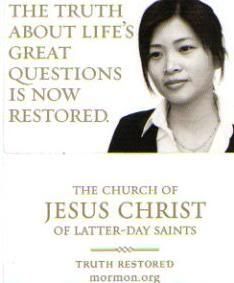Forgiving Others ... For Your Own Sake
"Forgiveness means that problems of the past no longer dictate our destinies, and we can focus on the future with God’s love in our hearts."
--Elder David E Sorensen ,"Forgiveness Will Change Bitterness to Love", May 2003, Ensign pg 10
Here is an article that I found in "Bottom Lines - Daily Heatlh News" that basically comfirms that you need to forgive for several reasons... Check it out.
This article came from: Lauren Zander, life coach and cofounder of HandelGroup
Last month when I spoke with life coach Lauren Zander about the importance and true meaning of apologies (see Daily Health News, February 12, 2009), my thoughts went naturally to the act of forgiveness and what that entails. Some people assume that apologies go hand in hand with forgiveness, a sort of dance à deux, but we humans are complex creatures and seldom function in a nice linear fashion. It can be easy to apologize, but to truly forgive is often an entirely different story. When I called Lauren to discuss forgiveness, we talked about how the issues involved can be deep and sometimes disturbing.
TWO SIDES OF FORGIVENESS
There are two sides to forgiveness, of course. You can either be the one asking for it, which is the process you begin with an apology (last month's topic) -- or the one of whom it is requested. And it covers a broad swath of infractions, from small ones such as inadvertently forgetting to bring home milk from the store, to major events and actions that damage trust on a deep level, e.g., marital affairs, lying, driving while intoxicated.
Lauren explains that forgiveness is always essential, a necessary step for moving forward in life. Even acts that seem unforgivable -- abuse, abandonment, violent crime -- may be understood within the context of a person's damaged life or soul. We'll tackle that topic next month, but it is important to understand that hanging on to past transgressions -- whether your own or others -- allows "the poison to stay within you," she says. Forgiveness is the only way to resolve deep feelings of anger, resentment or guilt that otherwise can intrude on your ability to form close relationships, to confidently pursue higher professional levels, even to bond properly with your children. In addition, unresolved, anger and resentment can contribute to physical ailments that range from heart disease and high blood pressure to digestive problems and depression. Lauren believes that it is always best to resolve issues as soon as possible, rather than carrying the anger within you for months and often years... sometimes forever. Sadly, it is not unusual for people to continue carrying anger and an unforgiving spirit toward someone who has died, generally a family member.
HOW TO HELP YOUR SELF FORGIVE
Whether the other person is dead or alive, your first step in forgiving is to really try to understand what happened. One way to do this, suggests Lauren, is to write a letter about the behaviors you found unforgivable -- you will know what they are because they continue to haunt you on some level. This is a letter that will never be sent. Rather, it's a way to give voice to your emotions and move your emotional pain out of your body.
Then, having written out your list of grievances, the challenge is to reconsider how the events happened from the other person's point of view. This may seem really difficult. "People who have been hurt by another find it very hard to recognize that there are two sides to every story and that they may have been holding on to facts that are out of balance," says Lauren. Ask yourself, what was the situation like for the other person? What might have made him/her so angry or harsh or led to the actions that hurt you so badly? What could have triggered all the behaviors in the event?
It's okay to come up with more than one explanation for a transgression since you don't know what was really going on in the heart and mind of the other person. For example, I know someone who has long held it against his mother that she forgot his tenth birthday. Challenged to revisit the story, he started to peel back the events of that year... how his mother, a single working mom, was worried that her company would close and she'd be unable to support her three children. In retrospect, he saw that her reality at that time was very different than his, as a 10-year-old excited about a cake and gifts. Once he recognized what was going on from her side, separately from his, he realized that there were reasons why she forgot. Although this didn't erase how hurt he was at the time, he forgave her and was free of it at last. This doesn't only work for childhood memories -- adult situations could include the wife whose friendship with another man became too close because her husband worked 80 hours a week... or the son who rarely visits his ailing mother because he is busy on weekends as a Little League coach.
WHY IS IT SO HARD?
The letter is a tool to help you see past your hurt to other factors that may have influenced the situation. Several aspects of human nature may make this hard to do. One impediment to letting go of hurt or anger is the fear of being hurt again -- but it is important to push past the fear, says Lauren. She describes not forgiving as being like holding a weapon or a shield in front of you, compared with having open arms. Being open lets the other person know not only that you have forgiven, but also that you are ready to trust again and fully reenter the relationship. Resolving the disconnect you had is freeing and nurtures a relationship, but it also makes both parties vulnerable to being hurt again, however inadvertently. Vulnerability can be scary.
The second factor at work, says Lauren, is even more complex. "People experience a type of power when they don't fully forgive because it gives them the sense of being in the righteous position." Forgiving requires not only letting go of that power, but also acceptance of responsibility for your part in the transgression, such as the mate who has been unwilling to make time for his spouse. Though this might be the hardest part, Lauren points out that acknowledging your part also liberates you from the role of victim -- a role that may feel comforting at first, but in the long run limits your ability to grow.
True forgiveness is a challenge that demands honesty about yourself and the other party. No matter your age, it is a call to grow up and deal with others on a mature and loving level. You will know that you have succeeded in forgiving -- or being forgiven -- when love is restored and once again flows. "You are no longer holding this against the other person and you have in fact buried the axe," says Lauren. "This doesn't mean that nothing will ever happen again. It does mean that you have learned from the event and it is over. Forgiveness is healing and that is why it is so important, but," she adds, "it is never easy."
Source(s):
Lauren Zander, life coach and cofounder of HandelGroup (www.handelgroup.com).
Note from Lucy: I have always thought about this quote when thinking about forgiving, "Poison erodes the vessel it resides in."



4 Comments:
I used to be one to hold a grudge, but God has really worked on me in that area and I've mellowed a lot in my old age. Plus, how can you hold a grudge when you can't remember what somebody did to you?! ;o)
I saw your note to me below about Sunday Dinner. Hope your pineapple salsa chicken was good.
Still having computer issues so I've not been online much. The saga continues....
Happy Spring!
Love and hugs,
Diane
Forgiveness is tough. I was glad to read the other day where "revenge" is healthier for you than "forgiveness". No wonder so many think Jesus was such a trouble maker:)
Hi Lucy,
Hmmm, Grannie Annie's comment totally messed up my train of thought. :-)
I've had a most difficult time forgiving someone in my life, even after that person commited suicide. Things are getting better, but I still need to work on some of the issues. And I've had a difficult time forgiving myself for something I did in the past. It really is hard! But I agree that "poison erodes the vessel it resides in," so I must work on it some more, and pray a lot for divine guidance.
I said more than I meant to say. Maybe that's good.
Take care!
Renie
I love those forever stamps. We probably have enough for another year or so.
Free books? Even if I don't like the genre, I'm sure I have students that would love to read this.
Have a great week!
Post a Comment
<< Home